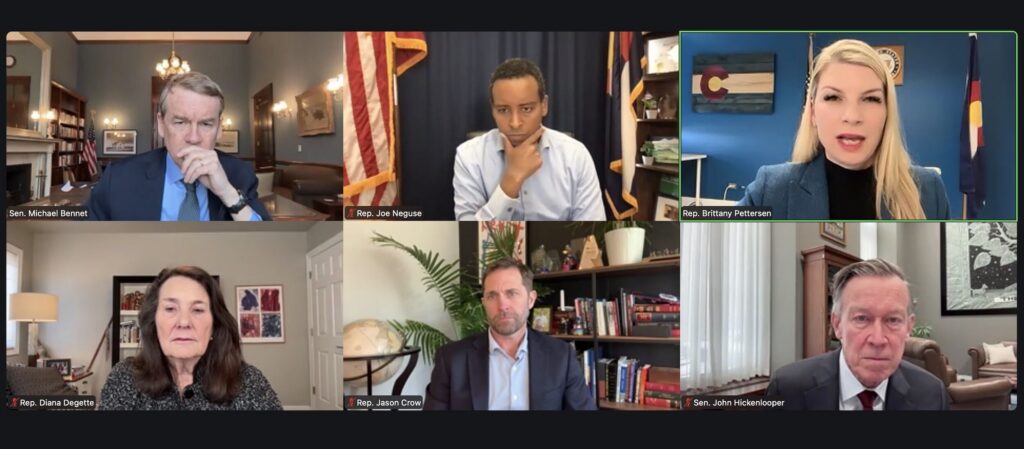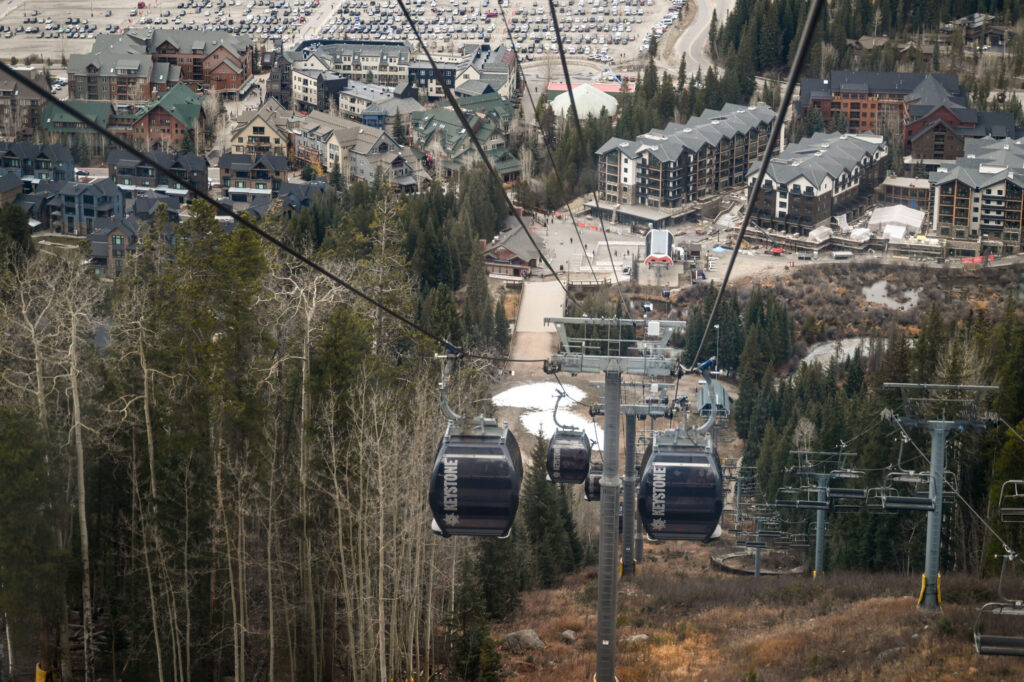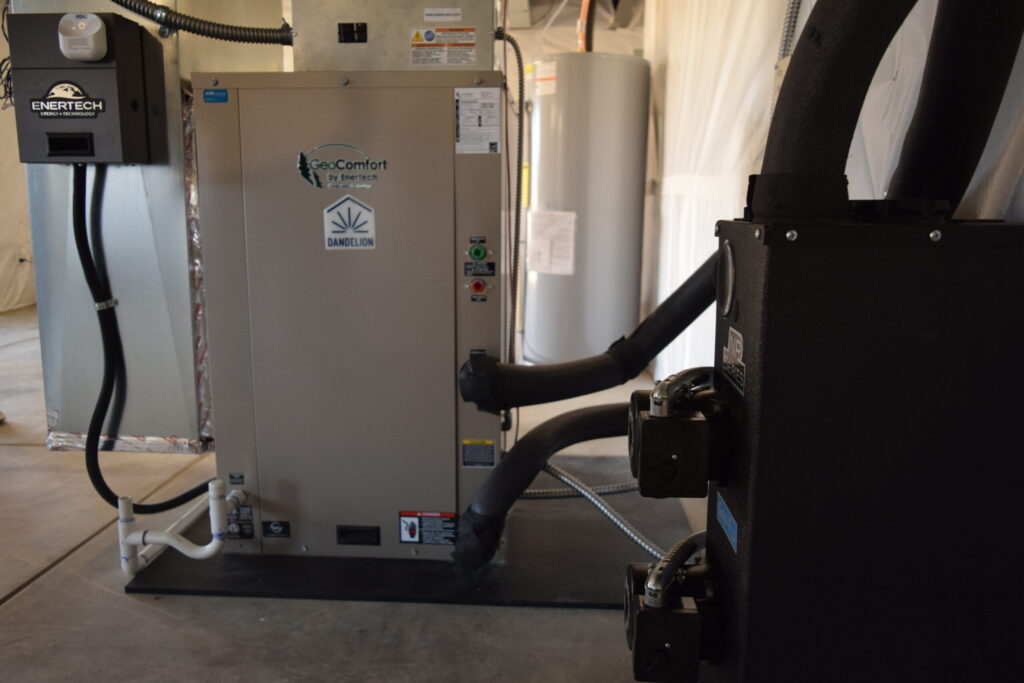Colorado lawmakers upset at EPA for ending payout for mine disaster
A bill approved by Congress this month has set up another struggle with the Environmental Protection Agency over compensation for the 2015 Gold King Mine spill that temporarily contaminated rivers in Southern Colorado, Utah and New Mexico.
The bill requires the EPA to submit all claims from states, local governments and tribes within 180 days after President Barack Obama signs the bill into law, which is expected within days. It also would authorize federal funding for water quality monitoring of waterways contaminated by the spill into Cement Creek and the Animas River.
The legislation is supposed to speed up compensation to farmers and other persons who claimed damages from the spill of 3 million gallons of water contaminated with heavy metals.
The Animas River and the adjoining San Juan River both are used for drinking water by several communities.
Dozens of mines lie along the length of the Animas River watershed in Southwest Colorado. They include 48 sites in the Bonita Peak Mining District, which the EPA has designated for Superfund cleanup.
The EPA already has agreed to pay more than $4.5 million in damages but this month served notice to claimants that it will not pay the additional $20.4 million they say they are due.
The EPA’s notice to claimants prompted angry responses from members of Colorado’s delegation to Congress, including both U.S. senators.
Republican U.S. Senator Cory Gardner and Rep. Scott Tipton, R-Cortez, sent a letter to EPA Administrator Gina McCarthy to protest what they called the agency’s refusal to fully reimburse affected state, local and tribal governments that were damaged by the Gold King Mine disaster.
The two lawmakers told McCarthy the Water Infrastructure Improvements for the Nation Act (WIIN Act) approved by Congress this month requires full reimbursement by the EPA. Gardner is a member of the Senate Energy & Natural Resources Committee.
“The justification cited by EPA in refusing to reimburse many response costs has no basis in law,” the letter says. “The provision included in the WIIN Act makes that clear. The law specifically directs EPA to expedite reimbursement of all response costs incurred by state, local and tribal governments prior to September 9, 2016 …”
The lawmakers said the EPA overlooked other claims by neglecting to respond to them.
Their letter said that “we reiterate our calls for the U.S. Department of Justice and EPA to expeditiously process the more than 60 claims that are still pending under the Federal Torts Claim Act regarding the spill. The Aug, 1, 2016, letter from EPA to state, tribal, local, and Congressional leaders stated that EPA and the Department of Justice ‘hope to be responding to these claims in the coming weeks.’ It is completely inadequate that our federal government has not moved forward on a single claim related to personal injury or economic loss resulting from the spill it caused over 16 months ago.”
EPA officials have responded to accusations of skimping on compensation by saying they follow federal guidelines on reimbursement for damages.
The Gold King Mine disaster near Silverton was triggered by a crew of EPA contractors who accidentally opened up a flow of wastewater while doing preliminary cleanup work.
The EPA stepped in to do the maintenance because local communities fearing a loss of tourism refused to remediate derelict mines themselves using Superfund money.
On Aug. 5, 2015, the contractors from Environmental Restoration LLC were attempting to add a tap to a tailing pond at the mine. The contractors accidentally damaged the plug that held wastewater in the mine, causing the tailing pond to overflow and spill into the nearby Cement Creek.
The wastewater contained arsenic, cadmium, lead and other heavy metals.
Local community leaders criticized the EPA for waiting a day before telling them about the spill. Colorado Gov. John Hickenlooper declared the site a disaster zone.
Utilities and farmers were forced to stop extracting water from the Animas and San Juan rivers for nearly two weeks until the contamination washed downstream.
In addition to the WIIN Act, Colorado’s federal lawmakers have sought compensation from the EPA with legislation to reauthorize the Water Resources Development Act (WRDA).
The bill passed by the Senate this month includes a provision sponsored by Sen. Michael Bennet, D-CO, to speed up reimbursement for emergency response costs.
The provision requires the EPA to decide whether to accept or reject a claim within 90 days after it is filed.
A contentious portion of the provision sponsored by Bennet would force the EPA to evaluate claims that arose after Oct. 31, 2015, the date the agency closed its incident command center.
EPA officials said any potential damage caused by the spill was over. However, local officials in La Plata County, Colorado and elsewhere said they continued to incur costs from the disaster.
“La Plata County still has approximately $29,000 in expenses for which we have requested reimbursement from the EPA that remain unpaid,” Joe Kerby, La Plata County manager, told The Colorado Statesman.
Most of the expenses came from additional staff working hours, he said.
“There should be a recognition by the EPA that our staff time spent addressing issues associated with the [Gold King Mine spill] created an additional workload for our staff and diverted time from being spent on other County responsibilities,” Kerby said.











